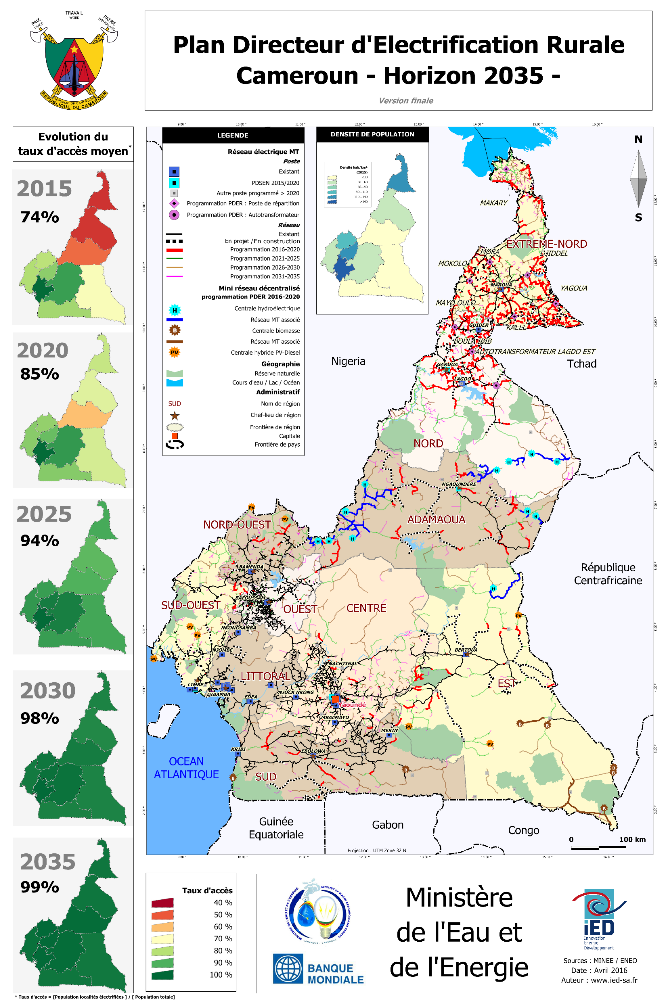Client
Ministry of Water and Energy
Country
Cameroon
Period
2014 – 2015
Funding
World Bank Group
Context
In Cameroon, the Government’s rural electrification policy is designed to promote the development of rural electrification through various initiatives. These include extending the distribution networks of existing concessions, such as the AES SONEL concession (now ENEO), issuing competitive tenders for new concessions and authorizations under Priority Rural Electrification Programs (PPER), and supporting Local Initiative Rural Electrification Projects (PILER).
The updated Rural Electrification Master Plan (PDER) will outline a five-year implementation plan aimed at connecting at least 250,000 new households within the concession area and an additional 20,000 households outside the concession.

Activities & Results
As part of the mandate entrusted to us by the Ministry of Water and Energy, we carried out the following activities:
- Analysis of the Current Rural Electrification Situation: We examined the existing electricity production and distribution systems in Cameroon.
- Socio-Economic Analysis and Energy Demand Forecasting: We analyzed the socio-economic context and projected energy demand in rural areas.
- Study of Rural Electrification Feedback in Other African Countries: We explored technical solutions to optimize the sizing of electrification efforts and identified cost-effective solutions tailored to the Cameroonian context.
- Planning Rural Electrification Projects: We established planning criteria for rural electrification scenarios, programmed deployment over fifteen years, and developed a detailed implementation plan for the next five years.
- Facilitation of the Consultation Process: We facilitated the consultation process with key stakeholders to validate the Rural Electrification Master Plan
- Capacity building on planning methodology and tools (GEOSIM) for national institutions

